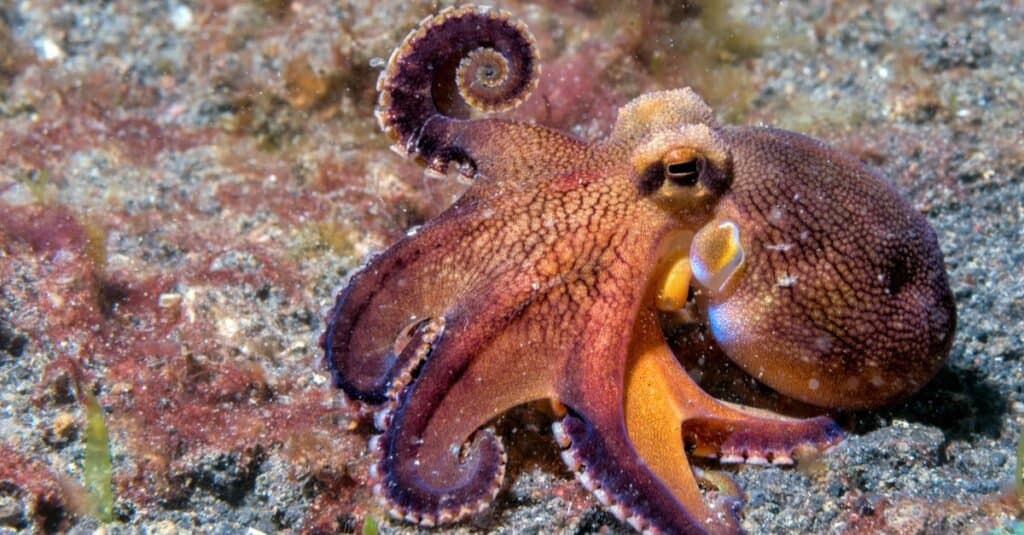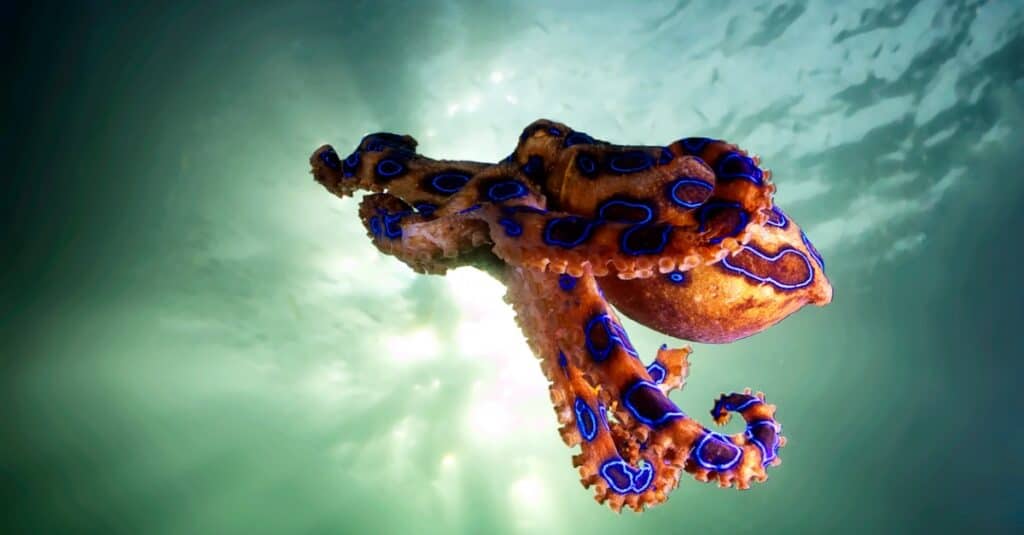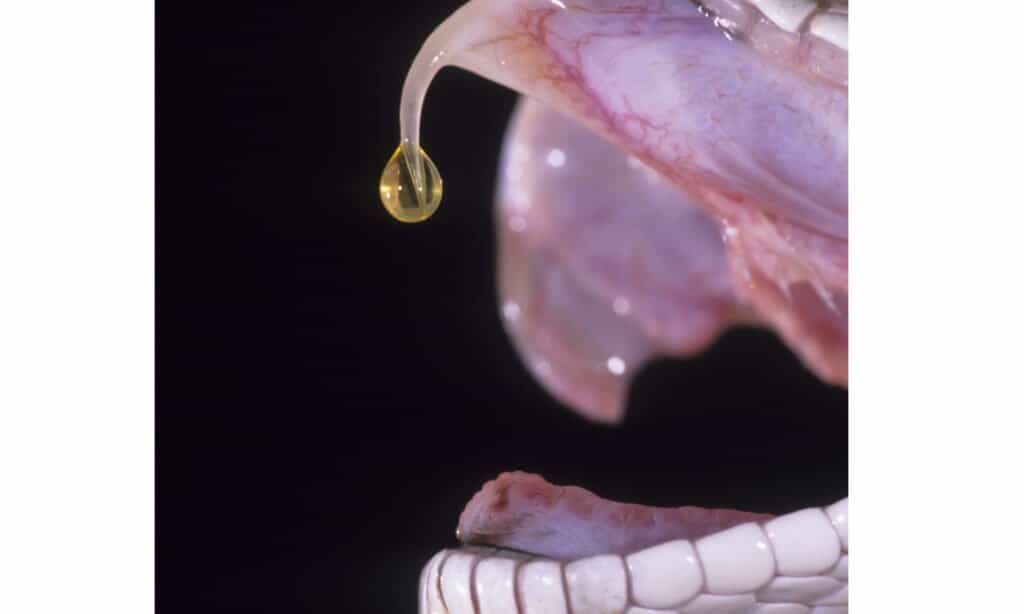Gather round, and I’ll tell you a tale of creatures both strange and wonderful: octopuses. You’ve probably heard of these unusual animals before — they’re those eight-limbed sea creatures that are often associated with mystery and magic. But are octopuses poisonous? It’s an age-old question that has captivated biologists and oceanographers for centuries. From ink jets to numerous tentacles, these remarkable creatures have a few surprises in store — and plenty of wit, too! Read on to find out if octopuses are poisonous and if you should really fear these mysterious sea dwellers.
The Difference Between Poisonous and Venomous Animals
Poisonous creatures produce toxins that can harm someone who ingests them. This means that things like mushrooms, toads, and even sea sponges can be poisonous because they contain toxins within their body structure.
On the other hand, venomous creatures have developed specialized organs which allow them to inject their toxins into another organism when they bite or sting. This makes them very different from poisonous species since they rely on physical contact to deliver the toxin. Whether you intend to camp in a forest or walk along a beach — understanding the distinction between poisonous and venomous is sure to keep you safe from any unexpected wildlife surprises.
Are Octopuses Poisonous?

All octopuses are venomous.
©Andrea Izzotti/Shutterstock.com
Although octopuses may look like sea monsters and can appear intimidating due to their alien-like features, these intriguing creatures are actually quite harmless — well, at least most of them are, but we’ll get to that in just a minute.
But are octopuses poisonous? Contrary to popular belief, octopuses are not poisonous, and they cannot poison humans; however, all octopuses are venomous. In fact, researchers recently discovered that all octopuses, cuttlefish, and some species of squid are venomous, and they share a common venomous ancestor.
Although octopuses are venomous, most of them are not lethal to humans. In fact, many do not have any effect on most land animals. Their venom is made to subdue other creatures of the sea where they live, like lobsters and crabs.
Octopuses also use venom for self-defense, but only as a last resort. In fact, even the most venomous octopuses are passive and gentle creatures and will try to swim away if they feel threatened.
How Octopus Venom Works

The blue-ringed octopus produces venom that can cause paralysis and even death in humans.
©iStock.com/Subaqueosshutterbug
Octopuses may look cute, but beneath their tentacles lies a deadly weapon — their venom. Many octopuses use venomous saliva to paralyze and incapacitate their prey, making them easy pickings for a tasty meal. This venom is contained within specialized salivary glands, similar to human saliva glands. However, some octopuses produce more venom than others, and their potency depends on the species.
For example, the giant Pacific octopus, which can grow over 15 feet long, has much weaker venom than the two- to eight-inch-long blue-ringed octopus. The blue-ringed octopus produces venom that can cause paralysis and even death in humans.
Most of their venom is stored in the salivary glands behind the octopus’s beak and is released through biting. Octopus venom contains neurotoxins, and once injected into its prey, these toxins cause muscle relaxation and paralysis. This can shut down the lungs and lead to suffocation or death. Clearly, there’s more to octopuses than meets the eye!
The Beautiful but Deadly Blue-Ringed Octopus Genus
Rare and rarely seen, the genus of blue-ringed octopuses (Hapalochlaena) are some of nature’s most mysterious creatures. There are four species of blue-ringed octopus, each of which is venomous and can be deadly to humans:
- Southern blue-ringed octopus (Hapalochlaena maculosa): Found along the southern coast of Australia.
- Greater blue-ringed octopus (Hapalochlaena lunulate): Found in the ocean waters around the Philippines, Indonesia, Vanuatu, Papua New Guinea, and the Solomon Islands.
- Blue-lined octopus (Hapalochlaena fasciata): Found in the Pacific Ocean, from Japan to Australia.
- Hapalochlaena nierstraszi: Extremely rare, found in the Indian Ocean in the Bay of Bengal.
Blue-ringed octopuses are the only octopus species that are known to be lethal to humans. Tiny but deadly, these creatures only grow a few inches long (from two to eight inches, depending on the species). However, they can still pack an astonishing punch — one that can even threaten human life. They do so with venom containing powerful neurotoxins like tetrodotoxin and highly effective proteins that attack neural cells in minutes.
Although they can be deadly, blue-ringed octopuses are usually passive and only use their venom if they are provoked. However, blue-ringed octopuses are so small that you may not even feel their bite! So, for those who stumble upon one of these creatures while out fishing or wading in the ocean, take heed: admire the beauty of its bright blue rings from afar!
The venom of the blue-ringed octopus is one of the most dangerous and deadly substances on earth. A single bite from this tiny creature can kill a human in just a matter of minutes! However, there have been survivors who have lived to tell the tale. The most important factor for survival is getting oxygen into the body as quickly as possible since the venom affects a human’s respiratory system.
Which Is More Dangerous: Poison or Venom?

Venoms are injected by stingers, bites, or spines.
©Joe McDonald/Shutterstock.com
It’s an age-old question: is it more dangerous to have poison or venom coursing through your veins? The two substances share some similarities: they both act as a defense mechanism to protect the animal that has them and cause harm to anything the animal deems as a threat. Both toxin and venom can be potentially lethal since they both contain toxic elements that can incapacitate or even kill an organism.
The main difference between the two is how they are introduced to the organism: poisons must be ingested orally or absorbed in some way, while venoms are injected by stingers, bites, or spines. Venom is produced by animals such as snakes, jellyfish, and octopuses, while poisons are usually ingested orally or absorbed through the skin.
Venom from a snake, for example, enters through a wound inflicted by its bite and quickly spreads in the bloodstream. On the other hand, poison might be found in a food item we ingest (like a poisonous mushroom) and then absorbed into our bodies. Poisons can also be absorbed through the skin, such as if you were to touch a poison dart frog.
Venom often contains neurotoxins, which interfere with nerve impulses and can cause respiratory paralysis. However, poison rarely affects the nervous system directly, instead concentrating on the liver or kidneys.
So, if someone asks you which is more dangerous — poison or venom — you can confidently answer, both!
Up Next:
- Types of Octopuses
- 10 Incredible Octopus Facts
- Do Octopuses Have Bones?
- The 10 Largest Octopuses in the World
- Do Octopuses Have Ink Like Squids?
The photo featured at the top of this post is © Henner Damke/Shutterstock.com
Sources
- Springer Link, Available here: https://link.springer.com/article/10.1007/s00239-009-9223-8
- National Library of Medicine, Available here: https://pubmed.ncbi.nlm.nih.gov/619451/
- Wiley Online Library, Available here: https://onlinelibrary.wiley.com/doi/abs/10.5694/j.1326-5377.1983.tb122736.x
FAQs (Frequently Asked Questions)
Are octopuses friendly?
There are around 300 species of octopus, and many of them are friendly. Octopuses are typically curious, and some may be playful and even bond with humans. These incredible sea creatures are extremely intelligent and resourceful.
Can an octopus bite you?
Yes, octopuses can bite with their small, hard beak-like mouths. However, only a bite from the blue-ringed octopus is potentially fatal to humans. Fortunately, these octopuses are shy and not known to be aggressive, so bites are not super common.
What are the symptoms of an octopus bite?
If you are bitten by an octopus, you will likely only experience very mild symptoms, such as numbness in your face or neck, tightness in your chest, nausea, and difficulty breathing. However, even if you are bitten by one of the non-lethal octopuses, you should still seek medical attention to be safe. In addition, you might not feel an octopus bite from a small species, so if you engage in physical contact with a small octopus, you should also thoroughly check your skin for bites.
Are octopuses dangerous?
The only octopuses that are dangerous to humans are the four species of blue-ringed octopuses. Other species do not have strong enough venom to kill humans, although they may cause some muscle fatigue and mild pain. In general, octopuses are very docile creatures. They are experts at hiding due to their impressive camouflage, and if they feel threatened, they try to swim away quickly.
Blue-ringed octopuses do have venom that can be lethal to humans. In addition, their venom is distributed throughout their body and tentacles, so even holding one of these brightly-colored beauties can be dangerous.
What happens if you are bitten by a blue-ringed octopus?
Due to their small size, you likely won’t feel the bite of a blue-ringed octopus, or it will feel like a bee sting. If you come into contact with one of these creatures, be sure to check your skin for bites or lesions. Even touching one can be dangerous, as their venom is distributed throughout their body and tentacles as well. So, if you happen to touch one of these creatures, get medical attention ASAP, even if you are not experiencing symptoms.
If you are bitten by a blue-ringed octopus, you will experience numbness and tingling sensations throughout your body within a few minutes, often starting in the face and neck. However, this quickly turns into paralysis, where the victim can hear and see what is going on around them, but cannot move or speak. The biggest danger is that this paralysis attacks the respiratory system, which in turn stops breathing. If the victim can get CPR and/or artificial respiration and treatment quickly, this will keep their respiratory system going and keep them from suffocating. Continually oxygen can help sustain the victim’s body until the venom wears off.
Where do blue-ringed octopuses live?
Blue-ringed octopuses usually live in tide pools, coral reefs, seagrass, algae beds, and along the seafloor in the Indian and Pacific Oceans. Most species live along the Australian coast, although some can be found from Australia up to Japan. These octopuses are typically nocturnal, so it is not super common to encounter them. However, if you are even in ocean waters where blue-ringed octopuses are found, you should never swim alone, and be extremely careful, since these venomous creatures can be deadly.
Can you touch an octopus?
Never try to touch an octopus, especially a blue-ringed octopus. While they may appear cute and cuddly, these venomous sea creatures are extremely dangerous and can kill a human in just a few minutes. Fortunately, octopuses are often shy and nonaggressive. Some octopuses can even be friendly — just be sure to keep them at arm’s length so that you and the octopus can stay safe. Octopuses also hide in cracks and crevices in rocks or reefs, so watch where you place your hand.
Thank you for reading! Have some feedback for us? Contact the AZ Animals editorial team.






